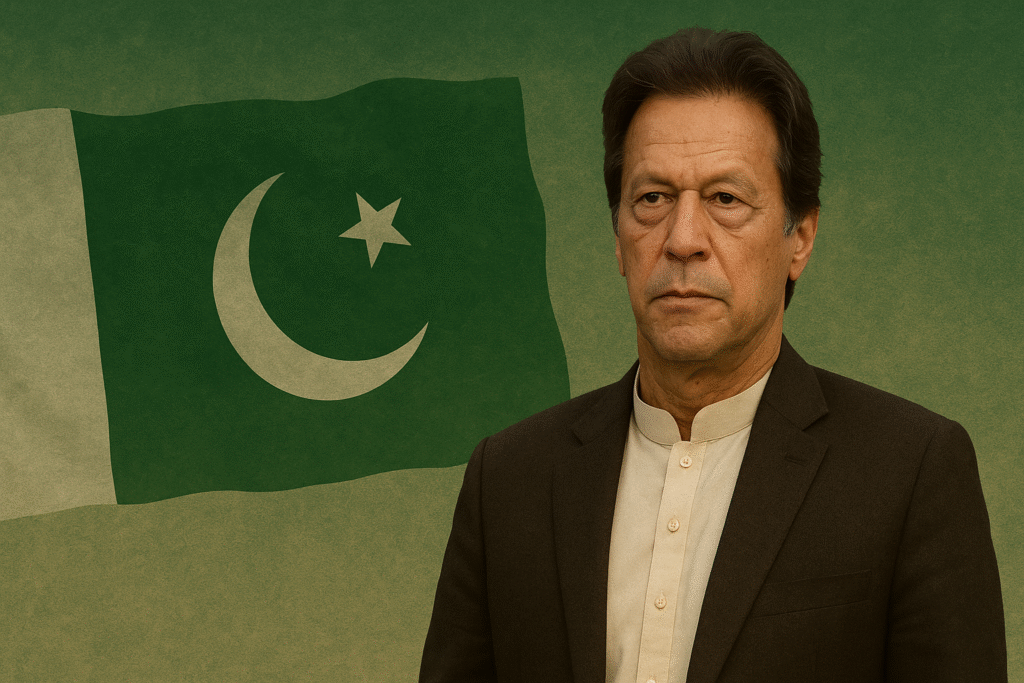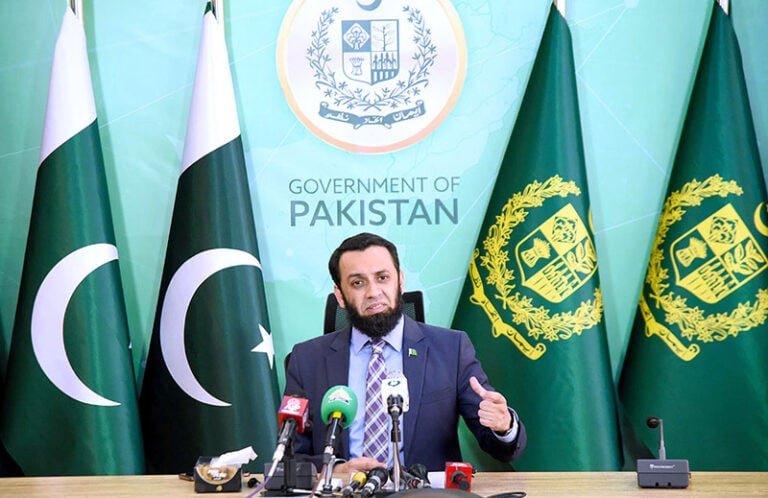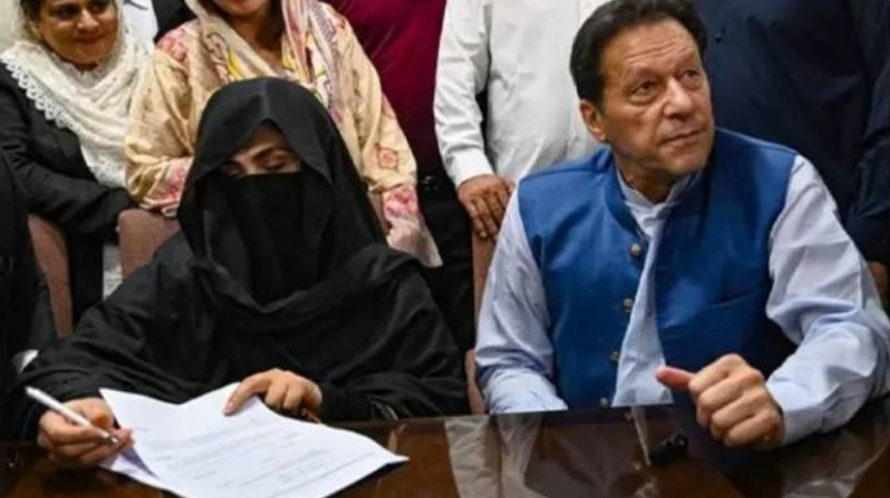The Political Transformation in Khyber Pakhtunkhwa: Imran Khan’s Message from Jail
A Turning Point in Pakistan’s Political Landscape
Pakistan’s political climate in 2025 stands at a crossroads, defined by turbulence, resilience, and a renewed quest for justice. Imran Khan’s message from jail on October 9, 2025, came at a time when the province of Khyber Pakhtunkhwa (KP) was experiencing one of its most significant political transformations. His statement was more than a response to shifting political dynamics—it was a declaration of unwavering commitment to constitutionalism, ideological purity, and the enduring power of grassroots politics.
In his message, Khan addressed several critical issues: the constitutional process behind the change of the KP Chief Minister, the ideological reasoning for Sohail Afridi’s appointment, the rising tide of terrorism in the region, and the ongoing political vendetta against him. More importantly, his tone reflected defiance, an unbroken spirit, and a call for unity among his supporters.
The political transition in KP did not occur in isolation. It was a reflection of deeper structural and ideological shifts within the Pakistan Tehreek-e-Insaf (PTI). As the party continues to resist external pressures and internal fragmentation, KP remains a stronghold symbolising PTI’s ideological foundation and mass appeal.
Why Khyber Pakhtunkhwa Became the Centre of Political Change
Khyber Pakhtunkhwa has long been a politically strategic province. Known for its history of resilience, it has often acted as the testing ground for Pakistan’s broader political experiments. The province’s transformation—both politically and socially—mirrors the nation’s ongoing struggle between democratic ideals and centralised control.
In 2025, KP found itself at the intersection of governance challenges, increasing terrorism, and political realignments. The decision to change the Chief Minister wasn’t merely a party reshuffle; it represented an attempt to realign PTI’s vision with its original grassroots ideology. For Imran Khan, this change was inevitable and constitutionally necessary—a reflection of the people’s demand for renewed leadership amid growing instability.
Moreover, the KP government’s structure had become a point of contention due to internal disagreements within PTI and external pressures from the establishment. Khan’s statement, therefore, sought to reaffirm that the political process unfolding in KP was legitimate, democratic, and free from undue influence—a critical stance given Pakistan’s history of political interference.
The Constitutional Process Behind the Change of Chief Minister
Understanding the Legal Framework of Provincial Leadership Changes
In Pakistan’s parliamentary system, the Chief Minister’s position is not just administrative—it’s constitutional. When political instability arises or when the party leadership believes that governance has deviated from its vision, a change in leadership becomes necessary. Imran Khan highlighted this very process, reminding the nation that the reshuffling of leadership within KP was conducted strictly under constitutional provisions.
He emphasised that the Chief Minister’s change was not the result of external pressure or family interference but a lawful political process that reflects democracy in action. Just as leadership transitions have occurred in other provinces, the same constitutional mechanism was applied in KP. His message urged everyone—especially state institutions—to refrain from interfering, allowing the democratic process to reach its natural conclusion.
Political Stability Through Constitutional Means
For any democratic system, political stability depends on adherence to constitutional norms. Imran Khan’s insistence on respecting this process was not just a political statement—it was a reaffirmation of his lifelong belief in institutional integrity. He clarified that PTI’s leadership transition in KP was rooted in transparency and accountability, not in power politics.
This emphasis on constitutionalism also served as a warning against those who might exploit the situation for personal or political gain. Khan warned that any interference in this lawful process would lead to mass protests, reflecting PTI’s strategy to safeguard democratic values through people’s mobilisation.
His words carried weight because Pakistan has a history of controversial power transitions, often clouded by allegations of manipulation. By positioning the KP leadership change as a model of constitutional governance, Khan sought to restore public trust in democratic procedures. This message resonates deeply with his supporters, who view him as the defender of democracy.
Sohail Afridi’s Selection: Symbol of Ideological Loyalty
From ISF Roots to PTI Leadership
Sohail Afridi’s rise from a student leader in the Insaf Student Federation (ISF) to the Chief Minister of Khyber Pakhtunkhwa is not just a political promotion—it’s an ideological statement. Imran Khan elevated Afridi based on his lifelong association with PTI’s philosophy and his commitment to grassroots reform.
Afridi’s journey reflects PTI’s original spirit—a movement built on merit, dedication, and ideological loyalty rather than dynastic politics or opportunistic alliances. His student activism days in ISF laid the foundation for a career shaped by resilience and devotion to the party’s principles.
The Rise of Grassroots Representation in PTI
In the broader political context, Afridi’s selection represents a major shift in PTI’s internal culture. For years, Pakistani politics has been dominated by electables—individuals with financial clout and family legacies rather than ideological conviction. By choosing Afridi, PTI reaffirmed its commitment to empowering genuine workers over political elites.
This move also strengthens PTI’s narrative of inclusivity and meritocracy. It sends a strong message to the youth—the real backbone of PTI—that dedication and integrity can lead to leadership, even in a system historically resistant to change. Imran Khan’s message made it clear: the future of PTI lies in the hands of those who believe in its vision, not those who exploit its platform for personal gain.
Addressing Misconceptions: The Role of Imran Khan’s Family in KP Politics
Separating Family from Politics: A Clarification from Imran Khan
In his message, Imran Khan directly addressed the rumours circulating about his family’s involvement in the appointment of the new Chief Minister. He categorically denied any familial influence in this decision, emphasising that it was a purely political and merit-based choice made by the party leadership.
Khan’s clarification was necessary given Pakistan’s political environment, where personal relationships are often conflated with political motives. He underscored that none of his family members has ever influenced PTI’s strategic decisions, especially in matters of provincial governance.
The Political Autonomy of PTI’s Decisions
By disassociating his family from political manoeuvring, Khan aimed to reinforce PTI’s image as a transparent, institution-based party. In addition, this distinction between personal and political decisions is part of his broader philosophy that leadership must remain accountable to the people, rather than family ties or elite networks.
This statement subtly critiques Pakistan’s traditional political dynasties, where individuals often inherit power instead of earning it. In contrast, PTI showcased its leadership transition in KP as a merit-based and ideologically consistent move, reinforcing its commitment to clean politics and organisational discipline.
Ali Amin Gandapur and Internal Party Conflicts
Loyalty, Leadership, and Political Challenges
Ali Amin Gandapur’s political career has been marked by both loyalty and controversy. Once one of Imran Khan’s closest allies, Gandapur found himself in the “line of fire” amid growing tensions within PTI. Imran Khan acknowledged Gandapur’s loyalty but also hinted at the challenges he faced due to the party’s internal divisions and external pressures.
Gandapur’s situation symbolises the broader struggle within PTI, a party caught between maintaining unity and managing dissent in an increasingly polarised political environment. Khan’s message delicately balanced appreciation for Gandapur’s contributions while signalling the need for new leadership in KP capable of navigating the province’s worsening security and administrative challenges.
The Impact of Security Policies on PTI’s Internal Dynamics
Khan also linked Gandapur’s political challenges to Pakistan’s failed counterterrorism policies under the current establishment. He criticised the military’s “empty ammunition” strategy and its lack of a comprehensive political vision, arguing that these failures have deepened instability in KP.
By connecting internal party dynamics with national security failures, Khan effectively framed the leadership change in KP as not just a political adjustment but a strategic necessity. This move aimed to rebuild PTI’s focus on effective governance and tackle the real issues affecting the province, including terrorism, lawlessness, and economic distress.



